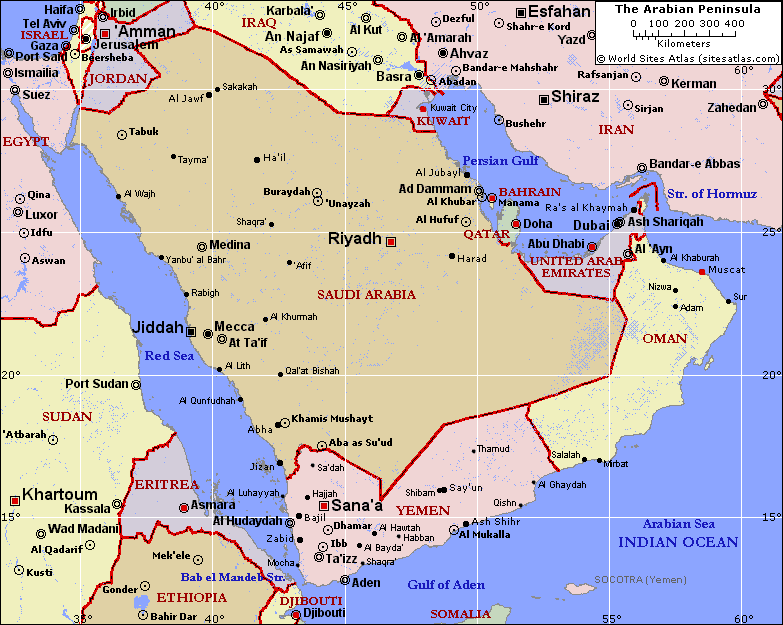
This week’s iteration of my regular “Defending the Faith” column has appeared in the Deseret News:
“New edition of ‘Accounts of Divine Manifestations’ is a significant work of Mormon scholarship”
***
But now for a few more lines from my forthcoming but not yet completed book on Islam for an LDS audience:
The Qur’an warned the Muslims that believers are not exempt from testing and from affliction, and indeed they were not. “Did you suppose that you would go to Paradise untouched by the suffering which was endured by those before you? Affliction and adversity befell them; and so battered were they that each Messenger, and those who shared his faith, cried out: ‘When will the help of God come?'”[1]
But Muhammad did not wait for God to help. While he undoubtedly trusted in God, he also took action on his own, as any responsible religious leader should. He began casting around for a place where his fledgling community of believers might be safe. He sent one group to Ethiopia, for instance, but that did not prove to be a good long-term solution.
Then the answer walked right up to him. Several days’ journey north of Mecca lay an agricultural oasis by the name of Yathrib. Yathrib was not really a town, but a collection of huts occupied by several different tribes, tribes that did not get along with one another. Life in the settlement was one conflict after another. It was often violent, always unpleasant and prone to disruption. In 620, a group of pilgrims from Yathrib came to Mecca. In the course of their visit, they interrupted their religious observances to make an important offer to Muhammad. They had, they said, heard of his intelligence and his integrity, and they also knew of his interest in getting himself and his people out of Mecca. Would he, they asked, please come to Yathrib? There, he could serve as an arbitrator between the conflicting factions of the oasis. Standing as he did outside any of the tribes, he would be able to stand apart from the disputes and to judge fairly.
Muhammad accepted the invitation on the condition that the people of Yathrib would recognize him as the Messenger of God. The delegation accepted his requirement. They were pagans and certainly did not fully realize the import of what they were committing to. It was one of the most important agreements in the history of mankind.
In 622, the Prophet and his followers emigrated from Mecca to Yathrib. This emigration, or hijra, as it is called in Arabic, now serves to mark the beginning of the Islamic calendar. Notice that the calendar does not start with the Prophet’s birth, nor with the beginning of the Qur’anic revelation, but with the emigration to Yathrib. Why? Because Muhammad went from being merely a prophet, a voice crying in the wilderness, to being the leader of a fairly sizeable community by the standards of seventh-century Arabia. He thus became a political figure, as well as a prophet.
As the nature of Muhammad’s responsibilities changed, so did the nature of the revelations he received. The suras received in Mecca had been short, with short verses and strong rhymes. They had been obscure, apocalyptic, oracular. In Yathrib, they became more concerned with legal or legislative matters, with the issues that arise in governing a community. Their form changed, too. They tended to be less poetic, more prosaic. The revelations or chapters were longer, and the individual verses within them were also longer. One verse from the second chapter of the Qur’an will demonstrate quite clearly the way Medinan revelations—as they are called, for reasons which will appear in a moment—differ from Meccan revelations. It will be noted that this represents simply one verse. (Compare it with, say, the entire hundredth chapter, cited above, which contains fully eleven verses within its brief compass.)
Believers, when you contract a debt for a fixed period, put it in writing. Let a scribe write it down for you with fairness; no scribe should refuse to write as God has taught him. Therefore let him write; and let the debtor dictate, fearing God his Lord and not diminishing the sum he owes. If the debtor be a feebleminded or ignorant person, or one who cannot dictate, let his guardian dictate for him in fairness. Call in two male witnesses from among you, but if two men cannot be found, then one man and two women whom you judge fit to act as witnesses; so that if either of them commit an error, the other will remember. Witnesses must not refuse to give evidence if called upon to do so. So do not fail to put your debts in writing, be they small or big, together with the date of payment. This is more just in the sight of God; it ensures accuracy in testifying and is the best way to remove all doubt. But if the transaction in hand be a bargain concluded on the spot, it is no offence for you if you do not commit it to writing. See that witnesses are present when you barter with one another, and let no harm be done to either scribe or witness. If you harm them you shall commit a transgression. Have fear of God, who teaches you; He has knowledge of all things. (2:282)
[1] 2:214; compare 2:155-57; 29:2-3.










